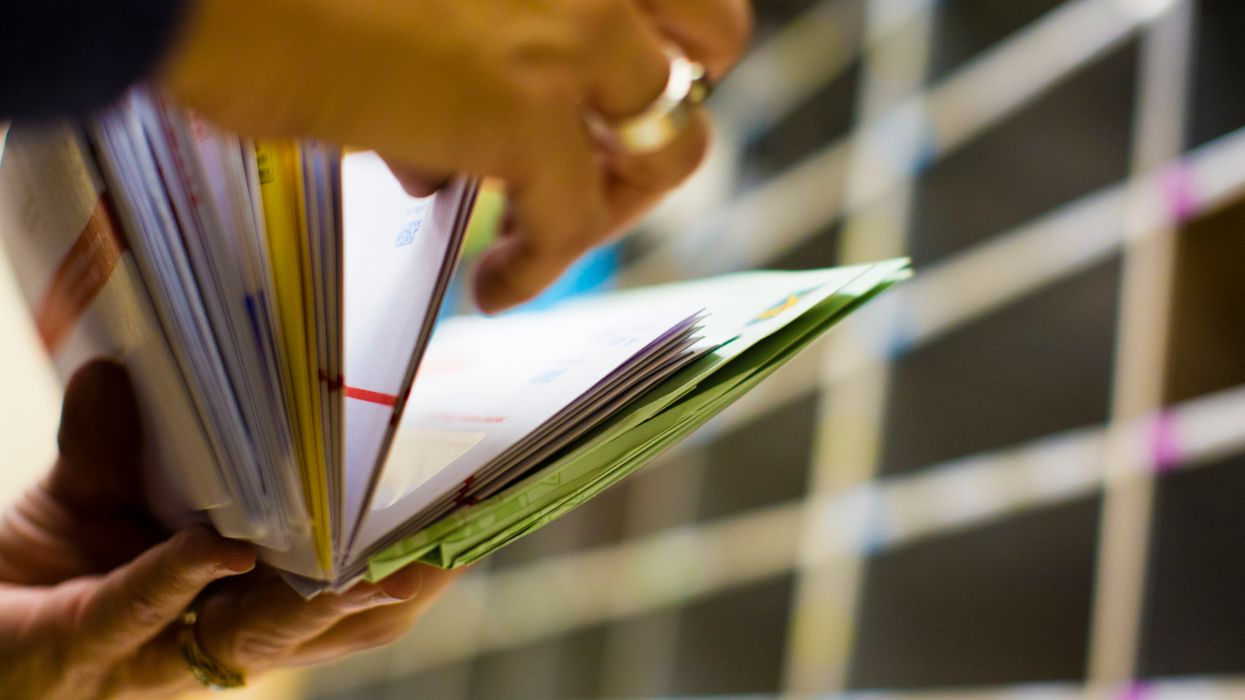Advocates for making voting safer and easier this year are showering Congress with appeals for help in the next coronavirus response package.
The flow of letters, e-mail and appeals posted online has accelerated in recent days, as lawmakers have started haggling over a fourth aid package since the pandemic took hold. But any decisions have now been delayed at least two weeks, as the Senate on Tuesday joined the House in postponing lawmakers' earliest return until the week of May 4.
The missives have much in common: They are signed mainly by progressive groups, augmented by a handful of cross-partisan good governance organizations. They focus on getting more money for expanding mail-in voting, early in-person voting, online registration and other steps to protect the electorate and election workers from the virus. And they stop short of calling for federal requirements for states spending the aid.
The most immediate decision for Congress is how to break a partisan stalemate over increasing funds to the Paycheck Protection Program, the small-business relief program at the core of the government's efforts to steer the economy beyond the worst of the Covid-19 outbreak.
Beyond that, Democrats have been pushing legislation mandating that states ease access to the ballot box this fall, principally by making absentee ballots available to all voters. Republicans object, arguing that would constitute a federal takeover of elections and spawn a wave of election fraud.
The groups are mainly soft-pedaling or staying away from that fight, especially now that President Trump's antagonism toward widespread voting-by-mail has hardened GOP opposition.
The award for the largest list of signatories clearly goes to the Leadership Conference on Civil and Human Rights, which had more than 200 groups on its letter sent Monday to all members of Congress. It asks for $4 billion in funds to help with delayed primary elections and the fall general election, on top of the $400 million provided in last month's $2.2 trillion stimulus package.
The letter highlights the need for more by-mail and early voting but also emphasizes the importance of providing safe Election Day options. It says states should not be required to provide matching funds — a 20 percent match on the first funds — and that some oversight should be included.
"We encourage Congress to institute accountability measures that provide latitude to states while ensuring that the funds are being directly used to ameliorate the impact of the pandemic on voting access," the groups wrote.
After the funding is delivered, the letter says, several policy changes "must be implemented" to ease the process of voting — including no-excuse absentee voting and online and same-day registration.
Among the more prominent groups who signed are the NAACP, the AFL-CIO, Common Cause, the League of Women Voters and the Sierra Club.
Another 50 groups sent an open letter to congressional leadership, also released Monday, demanding Congress provide $4 billion to the states. It calls for the money to be used for the same things mentioned by the Leadership Conference, and walks a similar fine line about mandates.
"While these reforms can and must be implemented by the states, Congress has an obligation to safeguard the integrity of our elections by setting national voting rights standards," says the letter. Stand Up America, Common Cause and Indivisible organized this letter, which includes some of the same groups as the first one.
On Tuesday representatives from a dozen different groups, many of which emphasize a more ideologically centrist approach to lobbying for fixes in the democratic system, signed a letter from the National Association of Nonpartisan Reformers urging Congress "to move swiftly and decisively on voter mobility legislation" — but without mentioning either a monetary request or the need for mandates.
A similar letter to Capitol's Hill's bipartisan leadership was sent last week by the top leaders of the new Fix the System coalition, a group including some of the most influential democracy reform groups formed this spring to push proposals they view as having potential for bipartisan support.




















Trump & Hegseth gave Mark Kelly a huge 2028 gift